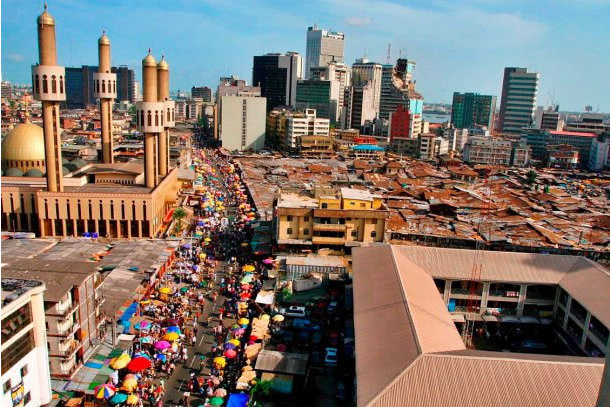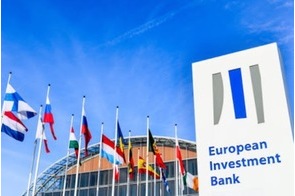FDI can provide solutions to urban poverty in Africa – UN-Habitat

Summary
Currently, Africa attracts just five percent of global FDI despite being home to 15 percent of the global population.
Foreign Direct Investment (FDI), if guided wisely, can provide credible solutions to urban poverty and unemployment alleviation, by supporting Africa’s shift from growth dominated by the primary sector to one led by manufacturing and knowledge intensive industries, says recent UN-Habitat report.
The State of African Cities 2018 report: The geography of African Investment, recently released by UN-Habitat and the IHS-Erasmus University of Rotterdam, was co-financed by the Department for International Development (DFID), African Development Bank (AfDB) and the Government of Norway.
“Africa is urbanizing at an extraordinary rate – with tens of thousands moving to cities every day. Half of the continent is expected to be living in cities by 2030 bringing the familiar challenges – unplanned urbanization, informal settlements, poverty, inequality, unemployment humanitarian crises, and conflict,” said UN-Habitat Deputy Executive Director, Dr Aisa Kirabo Kacyira, at the launch of the report.
Instead of focusing on urban planning, the 2018 State of African Cities report explores how Africa can plan to finance its development through attracting FDI to its cities, and guides us through the complex subject of global investment in Africa, Kacyira said.
The report noted that foreign firms and investors in African cities can play catalytic role in the development of the continent.
Financial and policy interventions are needed to support Africa’s emerging transformations and strengthen its already unfolding shift from FDI in the primary sector (resources), towards secondary and tertiary sectors (manufacturing, services and hi-tech).
“Such interventions would facilitate structural economic transformation and generate higher value added economic activities. FDI is a key resource to expedite Africa’s growth potential, since it promises to bring not only financial resources but also new technologies, knowledge and expertise.
Investment promotes employment, productivity and competitiveness through entrepreneurship in investment destinations,” the report says.
Currently, Africa attracts just five percent of global FDI despite being home to 15 percent of the global population, according to the report. However, recent FDI growth rate shows that Africa is the second highest in the world – and FDI makes up a third of foreign financial resources flowing into Africa.
And cities account for about 70 percent of global GDP; the UN-Habitat’s New Urban Agenda released in 2016 stresses their role as vehicles for inclusive and sustainable economic growth. The four major FDI centres in Africa are identified as Cairo, Lagos, Johannesburg and Nairobi and the report suggests both West and East Africa are likely to experience sustained investment growth, primarily in manufacturing.
The report explores four industrial sectors - manufacturing, services, Hi-tech and resources. Hi-tech has the highest FDI growth rate although still on a small scale, and in limited locations. Manufacturing FDI has the largest share of investment in Africa and areas such as machinery, building, car parts, consumer products, food and textiles are currently the most important in terms of employment generation.
Professor Ronald Wall, lead author of the report, said that Western Europe is the lead investor in Africa. “Some of the things investors look for include domestic market size, trustworthiness, and available credit are some of the determinants of FDI in Africa,” he said.
Western Europe is followed by Asia, North America and Africa itself, with geographic proximity being an important factor.
Marcellin Ndong, Lead Economist at the AfDB Nairobi Regional Office, said that the institution had invested some $35 billion in infrastructural development across the continent. “We must focus on developing our cities because they generate 55 percent of the continent’s GDP,” he said.
North Africa receives most of its FDI from Europe and the Middle East, while Eastern Africa’s mostly originates from Asia. The report shows that investment by Chinese firms has made contributions to African development, particularly with job creation in the manufacturing and infrastructure sectors.
Growth in African economies and decline in extreme poverty along with improvements in economic policies, advancing political stability and enhanced business environments have all made Africa increasingly attractive to FDI, according to the report.
“The report shows that African governments need to connect FDI attractions to sustainable urbanization by underpinning it with robust national urban policies, urban planning and financial and legal systems,” writes UN-Habitat Executive Director, Maimunah Mohd Sharif in her foreword to the report.
As a clear message to policy makers on the continent, the report singles out the importance of accessibility – including air, land and sea links as well as urban mobility, large local markets, connectivity, energy supply, public services and urban attractiveness.
The report also finds that a skilled workforce is becoming more important than low wages, and that good governance and regional integration are also key elements.
The report, however, sounds a warning bell on how FDI can exacerbate inequality and calls for African governments to have clear policies on areas that will benefit cities and aim for investments most likely to foster economic growth such as IT and manufacturing rather than those with limited value addition like resource extraction.
Related
-
China is not collapsing
The world has learned since 2008 how dangerously financial expectations can interact with policy blunders, turning modest ...
-
How Nigeria can become Africa's next automotive hub
Nigeria must make the development of a robust local automotive industry a priority because it has the capacity to inject ...
-
EIB provides $40 million to Africa-focused impact investor
The investment firm is committed to gender smart investing and seeks to ensure at least 30% of its portfolio of projects ...







